The best houseplants that clean the air - breathe easy with these natural beauties
From boosting oxygen levels to improving air quality - see which species experts suggest for a healthier home
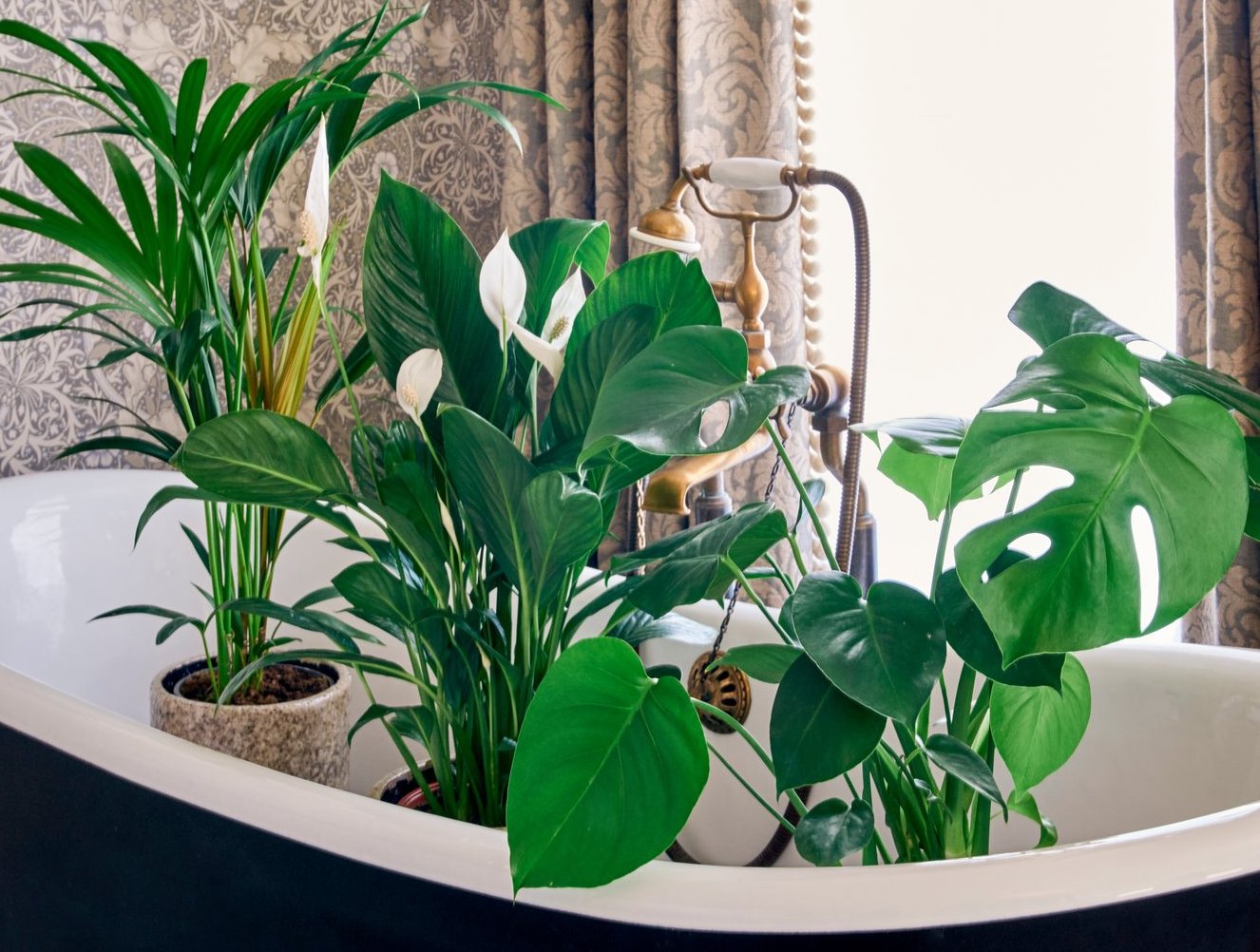
The Livingetc newsletters are your inside source for what’s shaping interiors now - and what’s next. Discover trend forecasts, smart style ideas, and curated shopping inspiration that brings design to life. Subscribe today and stay ahead of the curve.
You are now subscribed
Your newsletter sign-up was successful
Flourishing foliage brings your home decor to life but it doesn't stop at aesthetics. There are many houseplants that clean the air too, boosting the health of our homes and everyone in it.
A landmark study by NASA back in the eighties showed that many plant species purify the air, removing toxins such as Formaldehyde, Benzene and other carcinogenic nasties. This is important because whenever we buy anything made with synthetic materials for our homes it will 'off gas'.
From fire retardants in furniture to toxic chemicals in paint, varnish and floor coverings, according to some experts, the air inside our homes can often be more polluted than the air outside. However, an elegant way to enhance your home's air quality is with a smattering of house plants.
'Studies have found that, as well as removing carbon dioxide and releasing oxygen through photosynthesis, certain popular indoor plants also filter nasty pollutants called volatile organic compounds (VOCs) from the air inside our homes and offices,' says Maddie at The Stem. 'Fresher, cleaner air will do wonders for your wellbeing and productivity.'
Of course, all plants photosynthesise, and it's debatable due to the lab setting in the experiment, how many plants you would need to make a difference in air quality. However, many of the the popular species our experts suggest were included in NASA's scientific trial. So not only will they perk up your pad, they may help to remove toxins and purify the air in your home. It's a win-win as far as we can see.
5 OF THE BEST HOUSEPLANTS THAT CLEAN THE AIR
1. ENGLISH IVY
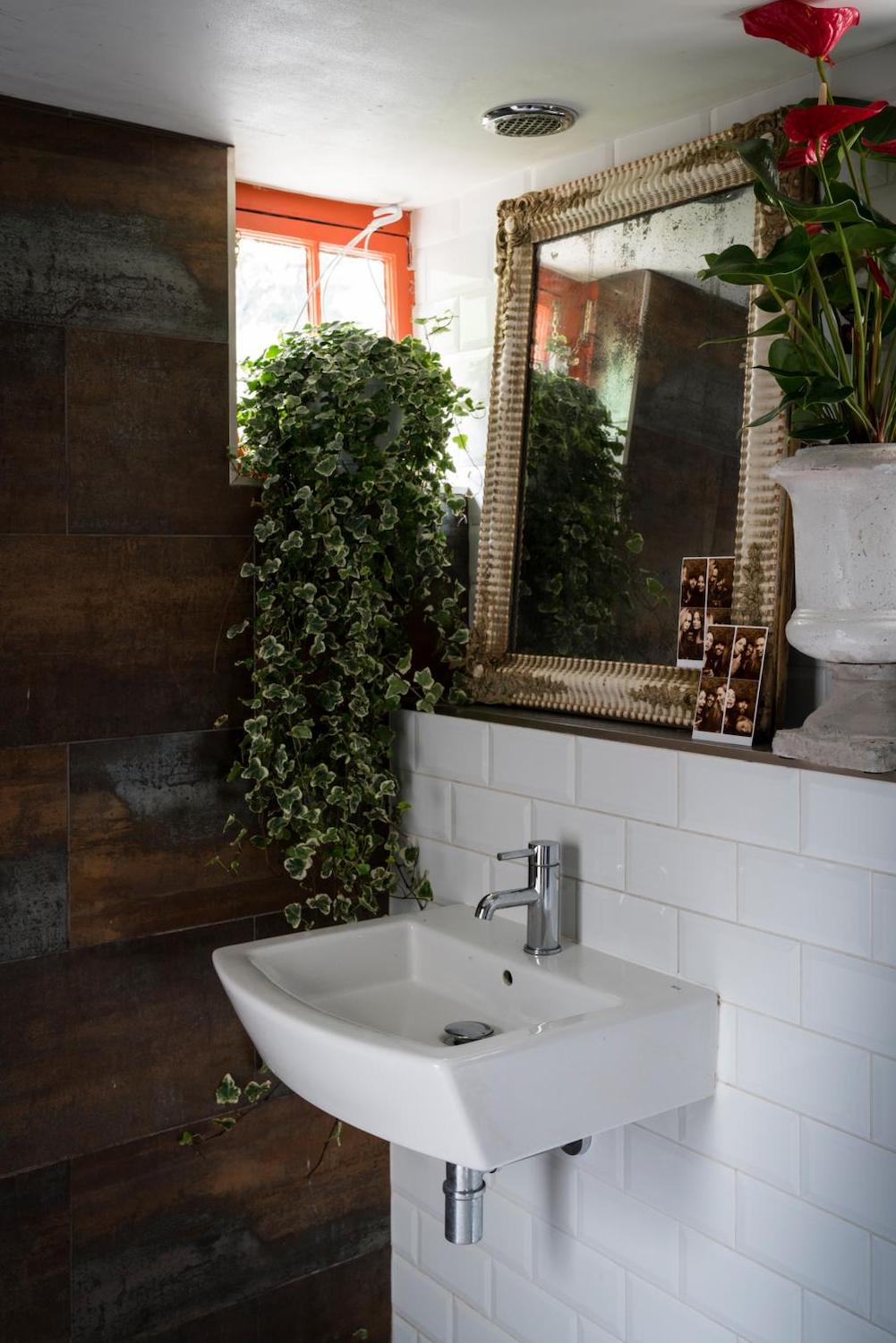
Although usually found outdoors in cottage gardens, English ivy is also well suited to grow inside. It grows quickly and is easy to care for, so you can take cuttings for further plants for gifts or for yourself.
'It’s beautiful white and green patterned leaves can be trailed or hung,' says Maddie at The Stem. 'English ivy will beautify your shelves or desk. It was included in the NASA study and is a superstar at removing VOCs from the air.'
The Livingetc newsletters are your inside source for what’s shaping interiors now - and what’s next. Discover trend forecasts, smart style ideas, and curated shopping inspiration that brings design to life. Subscribe today and stay ahead of the curve.
2. PEACE LILY
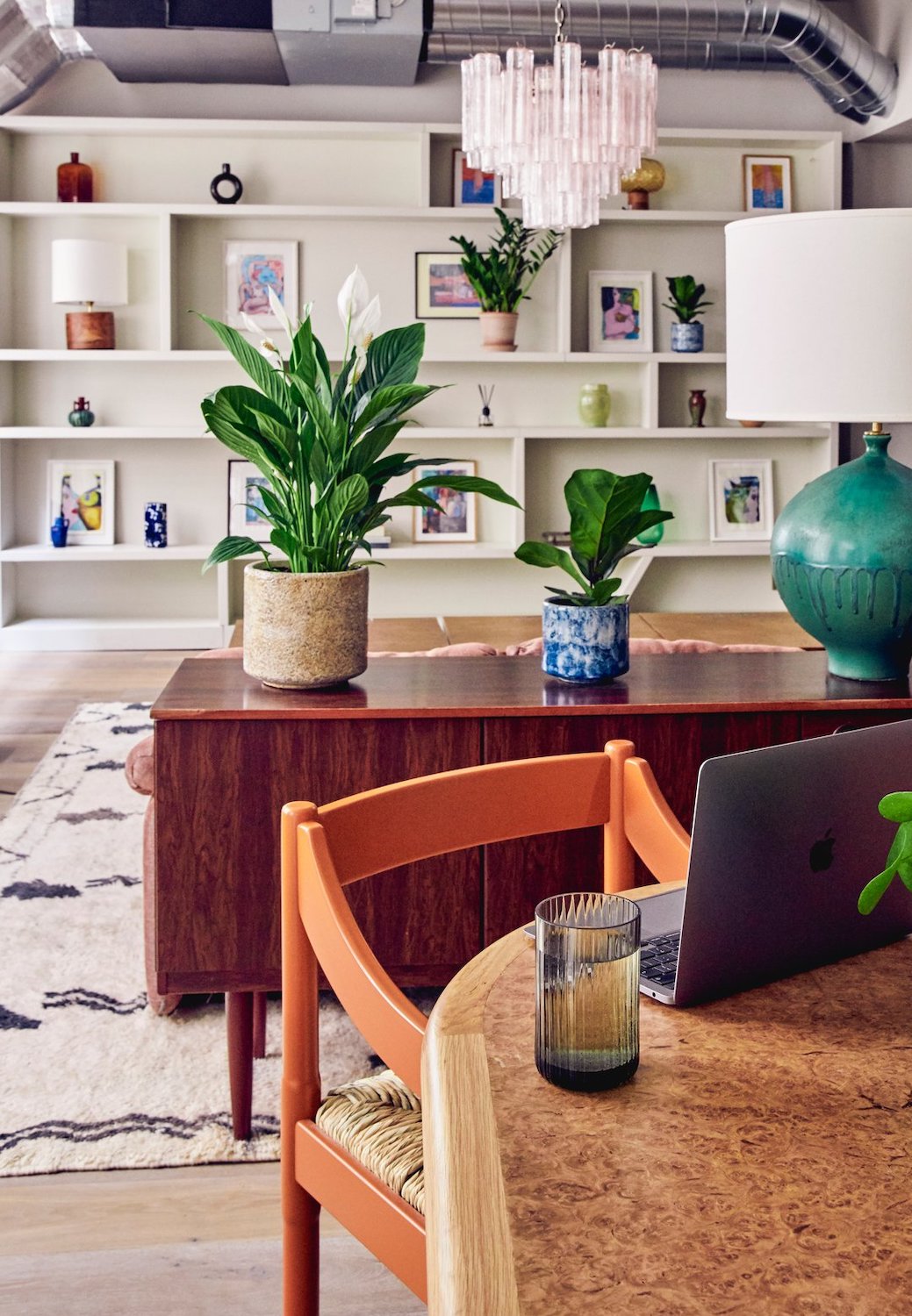
This tropical beauty has piercing white flowers, as well as a reputation for being great to sit beside a computer or microwave, due to its purifying properties. Another reason it's a good plant to have, is because it will let you know if it needs water. Its leaves will droop a little, although, will soon perk up again after a drink.
'The Peace Lily's glossy green leaves are superstars at cleaning the air; just remember to mist regularly and wipe clean to keep in tiptop condition,' says Maddie. 'It is hardy; coping in light shade as well as bright indirect light, and thrives in humidity. The air-purification qualities of the leaves means it's a great one for the home office or kitchen.'
3. SNAKE PLANT
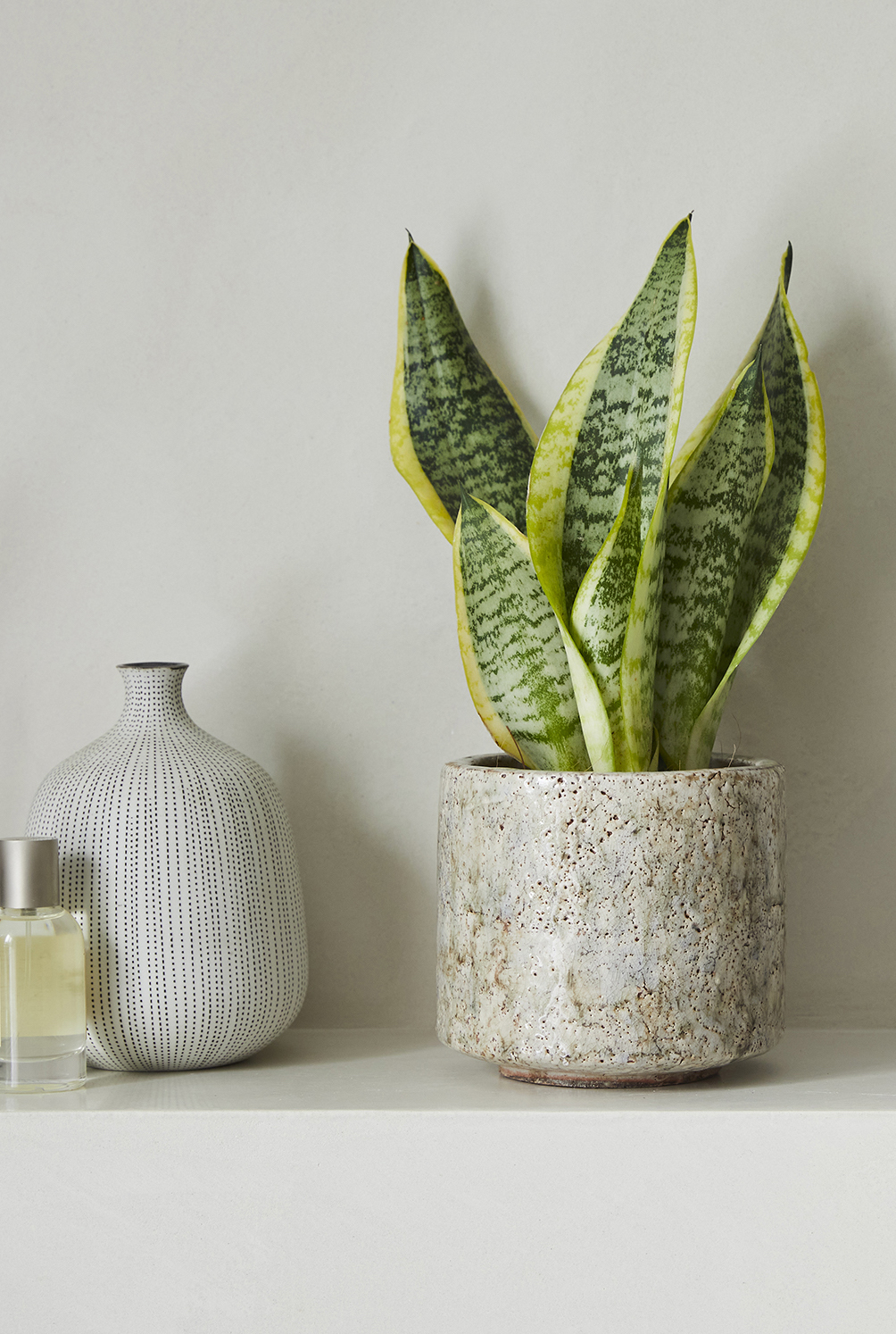
An unusual form of succulent, snake plants have become an interiors trend in the past couple of years. 'There are plenty of plants that are proven to purify the air,' says Richard Cheshire, plant doctor at Patch Plants. 'Snake plants are NASA recommended for air-purifying qualities and are known to remove toxins and release oxygen at night.'
It's this reverse photosynthesis (releasing oxygen at night, instead of carbon dioxide, like most other plants) that means it's ok to have Snake plants in the bedroom. It's for this reason it's won the dubious billing as the 'anti-snore' plant too.
If you sleep with a snorer, give it a go. The worst that can happen is you'll both breathe better and your bedroom will look and feel fresher too.
4. DEVIL'S IVY
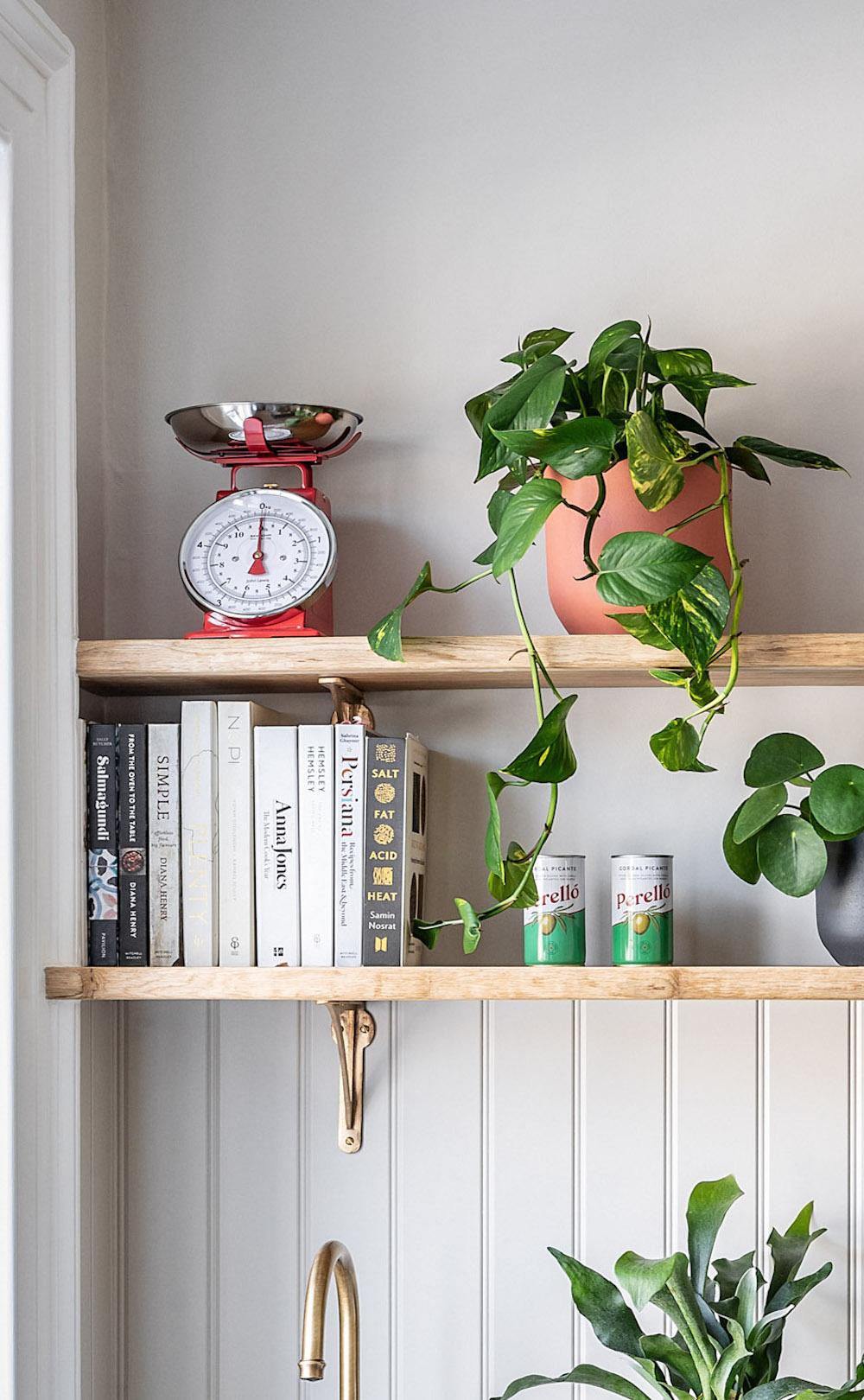
'Devil's ivy aka Golden Pothos are known to eliminate formaldehyde, xylene, toluene, benzene, and carbon monoxide,' says Richard at Patch. 'These clever plants can also survive almost anywhere. Just keep them out of direct sunlight or total shade, and use the finger dip test to see when they need a drink. To make them extra happy, feed them once a month through spring and summer.'
If you've recently decorated, bought new furniture, or live on a busy main road it would be worth having a few of these plants dotted around your home.
Due to its hardy characteristics and low maintenance care requirements, Devil's ivy is one of the best houseplants for beginners. So if you're not already a plant parent, it's a good one to start with.
5. KENTIA PALM
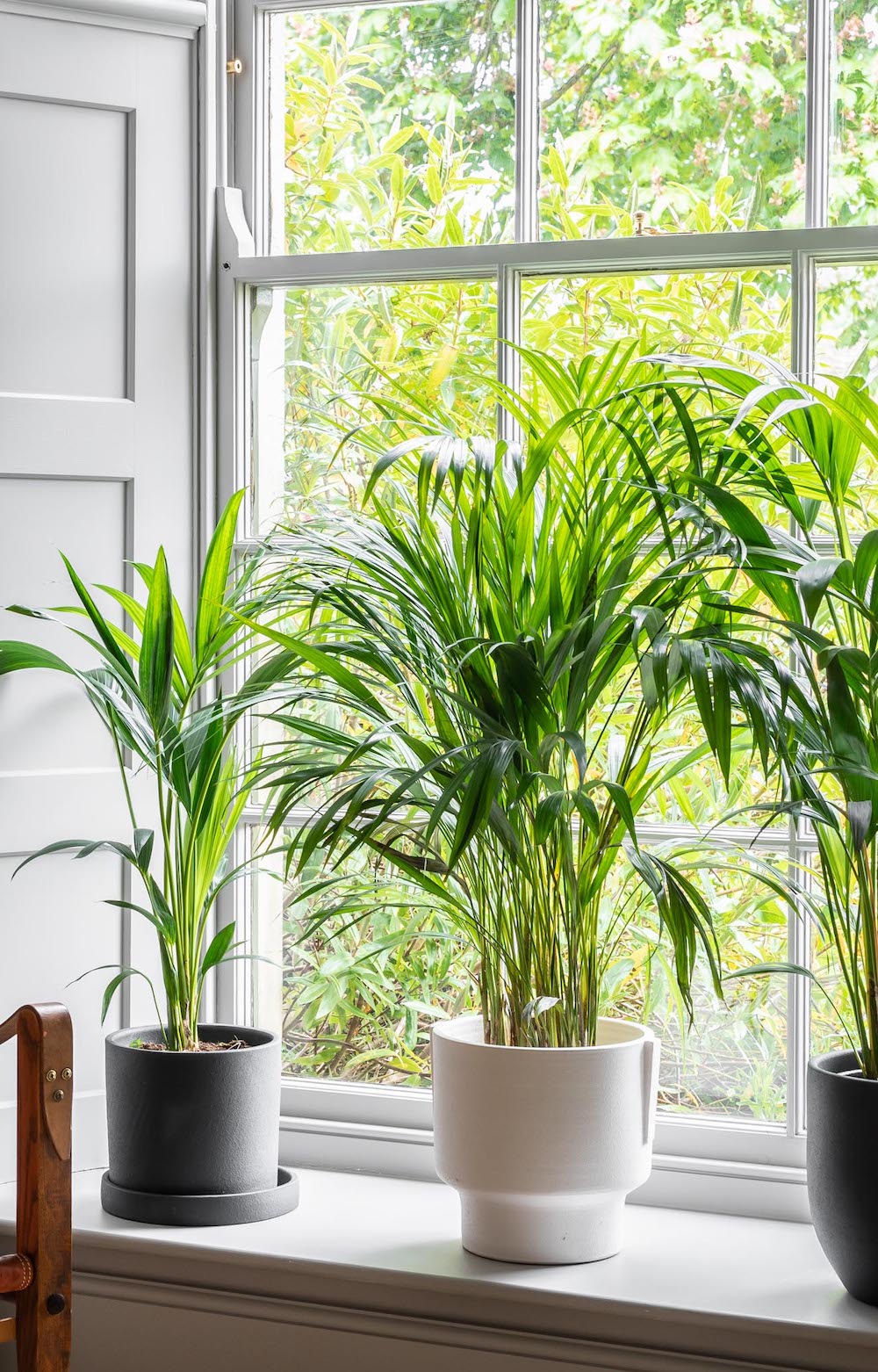
There's an elegance to palms that harks back to the Art Deco era and the grand cafes of old. It's one of the reasons for their renewed popularity in modern interiors. This decorator's favourite was in the study too.
'The Kentia Palm is one of the most versatile plants around and its luscious tall stems and long, glossy, green leaves fan out to make quite the impression,' says Maddie at The Stem. 'The Kentia can cope in light shade and humid conditions. It likes being misted regularly so showers and baths nearby are great at keeping the foliage fresh and airy. This is another great plant for removing pollutants from the air too.'
WHICH HOUSEPLANTS ARE BEST FOR IMPROVING AIR QUALITY?
Peace Lilies, English Ivy, Devil's Ivy (Golden Pothos), Snake plants, Dragon trees and Weeping fig were among the plants in the NASA study that removed toxins, such as Benzene, Formaldehyde, Trichloroethelyne. These carcinogenic chemicals are commonly found in solvents, ink, lacquers, adhesives, particle board, plastics and fire retardants.
Basically, many of the products you might use if you're doing a home renovation. If that's the case, it could be worthwhile including these houseplants in your finished room scheme. As much for their air purifying properties as their attractiveness.
Alternatively, consider clay plaster walls, oiled FSC timber flooring and other breathable or non-toxic finishes in your scheme.
Jacky Parker is a freelance lifestyle journalist and writer, producing a wide range of features for magazines and digital platforms. She has written for Livingetc and its sister titles, Homes & Gardens and Country Homes & Interiors for more than 15 years, both as a freelance contributor and as Acting Digital Editor and Acting Style Content Editor, regularly reporting on the latest interiors, gardens and wellness inspiration, speaking to experts in their respective fields, and discovering the best tips.
Jacky has also written for other publications, including Sunday Times Style, The Telegraph, Architectural Digest, House Beautiful, ELLE Decoration, Red, Grand Designs and more.